
Bassar: The Hidden Gem of Togo
Nestled in the heart of Togo, Bassar is a charming town known for its rich cultural heritage and warm hospitality. This destination offers a unique blend of traditional and modern experiences, making it a must-visit for any traveler seeking to explore the authentic spirit of West Africa. Bassar is famous for its ironworking history and traditional crafts. Visitors can explore the local markets, where artisans showcase their skills in weaving, pottery, and metalwork. The town's vibrant atmosphere is enhanced by its lively festivals, which feature traditional music, dance, and storytelling. Nature enthusiasts will love Bassar's scenic landscapes. The surrounding hills and forests are perfect for hiking and nature walks. Don't miss the opportunity to visit the nearby Bafilo waterfalls, a stunning natural attraction that offers a refreshing escape from the heat. Whether you're interested in history, culture, or nature, Bassar has something to offer. Its friendly locals and laid-back vibe make it a perfect destination for a relaxing yet enriching travel experience.
Local tips in Bassar
- Visit the local markets early in the morning for the best selection of handmade crafts.
- Carry cash, as credit card facilities are limited in Bassar.
- Hire a local guide to learn more about the town's ironworking history and to navigate the surrounding nature trails.
- Attend a local festival to experience traditional music, dance, and storytelling.
- Wear comfortable walking shoes if planning to explore the hills and visit the Bafilo waterfalls.
Bassar: The Hidden Gem of Togo
Nestled in the heart of Togo, Bassar is a charming town known for its rich cultural heritage and warm hospitality. This destination offers a unique blend of traditional and modern experiences, making it a must-visit for any traveler seeking to explore the authentic spirit of West Africa. Bassar is famous for its ironworking history and traditional crafts. Visitors can explore the local markets, where artisans showcase their skills in weaving, pottery, and metalwork. The town's vibrant atmosphere is enhanced by its lively festivals, which feature traditional music, dance, and storytelling. Nature enthusiasts will love Bassar's scenic landscapes. The surrounding hills and forests are perfect for hiking and nature walks. Don't miss the opportunity to visit the nearby Bafilo waterfalls, a stunning natural attraction that offers a refreshing escape from the heat. Whether you're interested in history, culture, or nature, Bassar has something to offer. Its friendly locals and laid-back vibe make it a perfect destination for a relaxing yet enriching travel experience.
When is the best time to go to Bassar?
Unmissable attractions to see
Parc Sarakawa
Explore the vibrant wildlife and lush landscapes at Parc Sarakawa, the premier zoo in Sara Kawa, Togo, perfect for families and nature lovers.
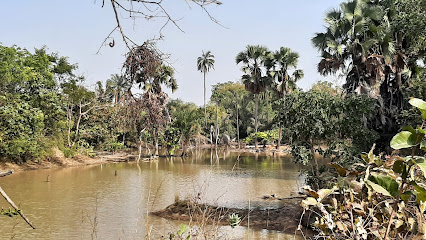
Forêt d'Abdoulaye
Explore the breathtaking Forêt d'Abdoulaye in Kokbété, a serene nature preserve perfect for relaxation and wildlife observation.
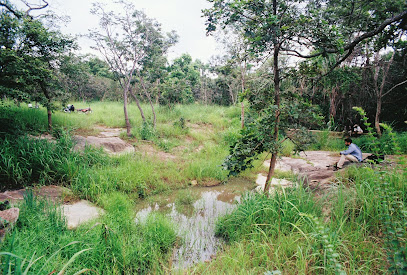
PLANTATION ODEF , FORET DE NAMON
Discover the lush landscapes and vibrant biodiversity of Plantation Odef, Foret de Namon, a national forest perfect for nature lovers and adventure seekers.
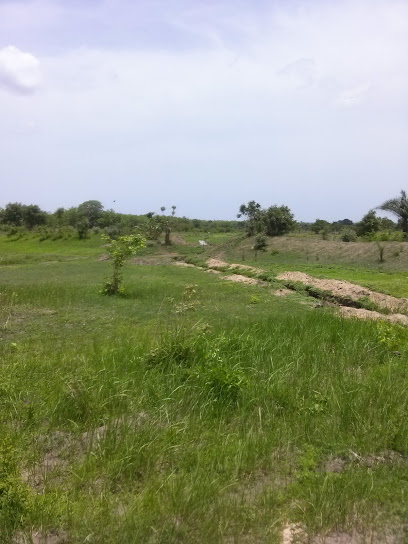
Cascade de Sara
Experience the serene beauty of Cascade de Sara, a breathtaking waterfall in Bafilo, Togo, perfect for nature lovers and adventure seekers alike.
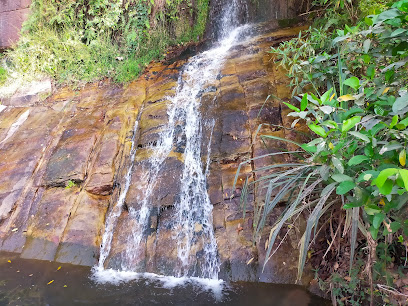
Palais royal de bangeli
Explore the rich cultural heritage and stunning architecture of Palais Royal de Bangeli, a highlight of Bandjeli's historical landscape.
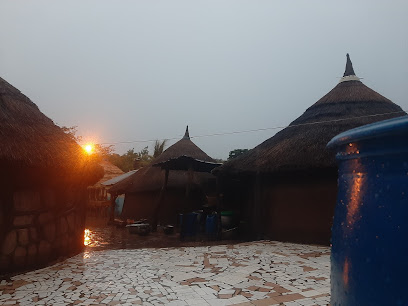
AGOU KEBO KPETA
Explore Agou Kebo KPETA, a stunning tourist attraction in Togo, offering breathtaking landscapes and rich cultural experiences for every traveler.
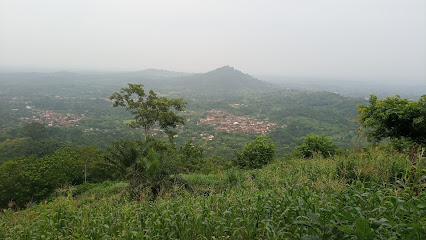
Forêt De Natchitikpi (Odef)
Experience the serene beauty of Forêt De Natchitikpi, a national forest in Natchitipi, Togo, perfect for nature lovers and outdoor enthusiasts.
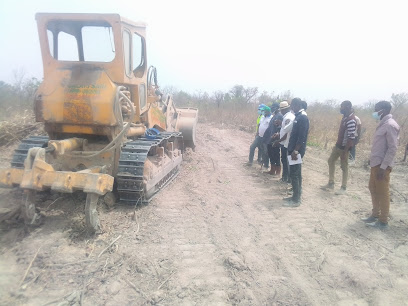
Route de djamdè
Explore the natural beauty of Route de Djamdè, a serene park in Djamdè perfect for relaxation and outdoor adventures.
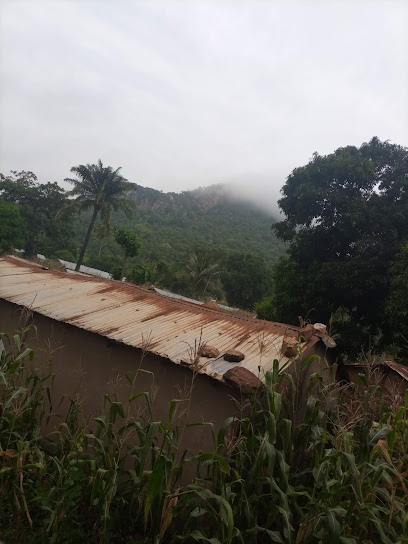
Fazao-Malfakassa National Park
Explore the breathtaking landscapes and rich biodiversity of Fazao-Malfakassa National Park, a true gem in the heart of Togo's natural wonders.
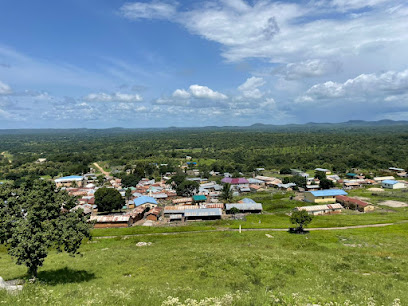
Cascade de Sako
Explore the tranquil beauty of Cascade de Sako, a stunning waterfall in Boulohou, Togo, surrounded by lush greenery and rich biodiversity.

Coline de Sokodé
Discover the serene beauty and cultural richness of Coline de Sokodé, a captivating hilltop escape in Togo's breathtaking landscape.
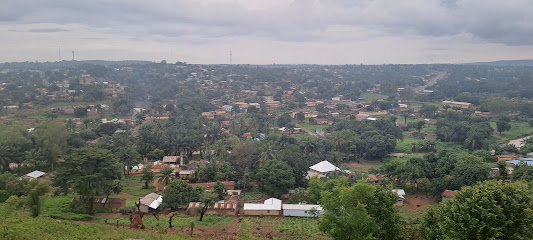
Bago, marché
Explore Bago Market in Tchamba for a vibrant experience of local culture, fresh produce, and artisanal crafts in the heart of Togo.
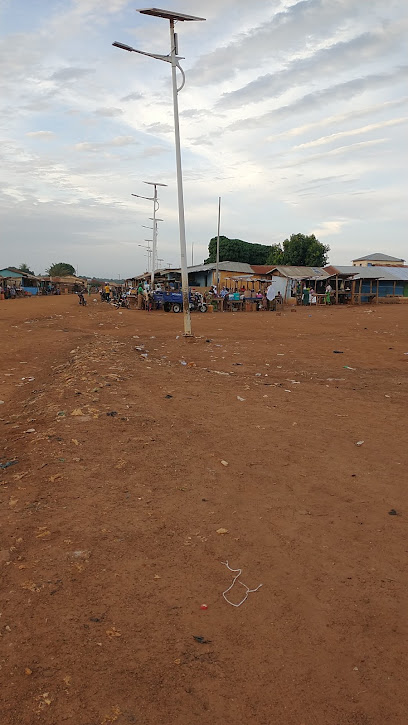
Kdj1
Experience the serene beauty of Kdj1 Park in Sokodé, where nature meets tranquility in a picturesque setting for relaxation and leisure.

Cascade de Yaka
Experience the serene beauty of Cascade de Yaka, a stunning park in Niamtougou, Togo, featuring breathtaking waterfalls and lush greenery.

Culture Tchamba
Explore the rich cultural heritage of Tchamba at Culture Tchamba, where tradition, art, and local flavors come alive.
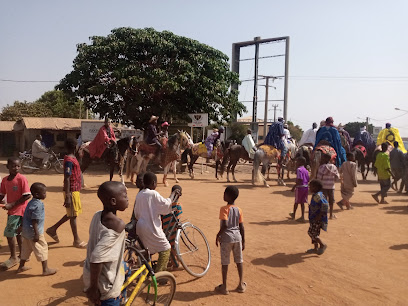
Markets, malls and hidden boutiques
Marché de Bassar
Experience the colorful culture and flavors of Togo at the Marché de Bassar, a lively market filled with local crafts and delicious cuisine.
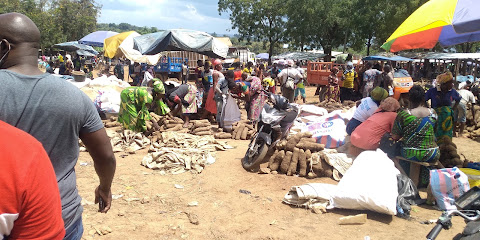
CIB-INTA BASSAR
Explore the CIB-INTA BASSAR Shopping Mall in Lomé, a vibrant hub for shopping, dining, and local culture amidst the heart of Togo.
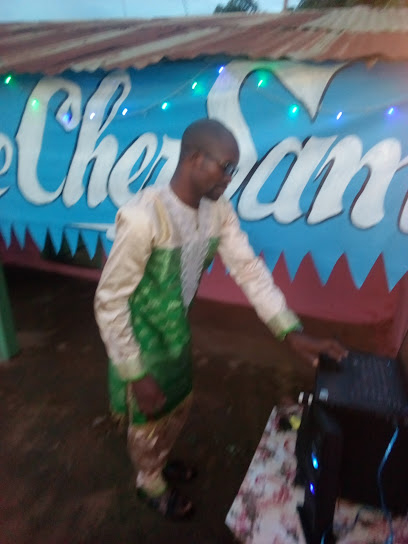
Bassar
Experience the vibrant local culture and unique shopping of Bassar, Togo, where artisan craftsmanship meets a welcoming community atmosphere.
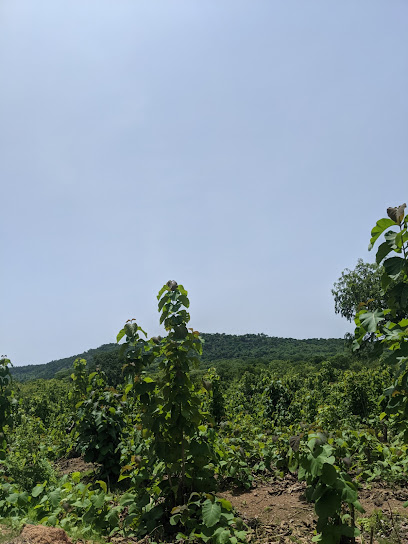
Boucherie centrale de Bassar
Explore the authentic tastes of Togo at Boucherie Centrale de Bassar, where quality meats and local culinary traditions come to life.

Seidou Kpapou
Explore top-quality electronics in Kpankissi at Seidou Kpapou, your local destination for the latest gadgets and tech accessories.
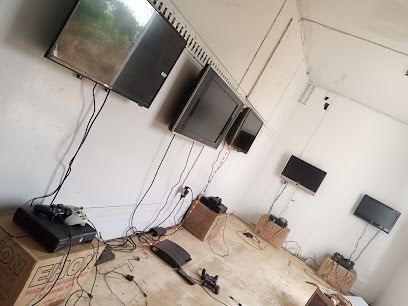
Boutique Dieudonné alimentation
Discover the charm of Boutique Dieudonné Alimentation in Bassar, where local flavors meet artisanal craftsmanship for an unforgettable shopping experience.

Boutique
Explore Bassar's Boutique, a charming gift shop offering unique local crafts and memorable souvenirs that capture the essence of Togolese culture.

Togocom Boutique Bassar
Explore Togocom Boutique Bassar, a vibrant shopping mall offering a mix of local and international brands, dining, and cultural experiences.

Bimala gurung
Discover the cultural essence of Bassar through exquisite garments at Bimala Gurung, a charming clothing store brimming with local craftsmanship.

Naby Trade International
Discover the best of Bassar shopping at Naby Trade International, a general store brimming with local products and warm hospitality.

CFDMPPI
Explore the vibrant and sustainable organic food scene at CFDMPPI in Bassar, where local produce meets agricultural innovation.

Ets Aladé Max et fils
Explore Ets Aladé Max et fils in Bassar for all your building material needs. Quality supplies and expert advice await you in Togo's construction hub.

Quincaillerie de bassar
Discover the essence of local craftsmanship at Quincaillerie de Bassar, a bustling market filled with building materials and unique handmade treasures.
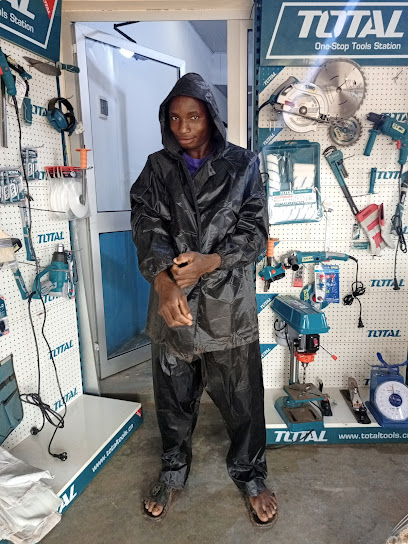
Ets Carrefour bleu Kader et Fils
Explore the best of electronics at Ets Carrefour Bleu Kader et Fils in Bassar, your essential stop for quality tech and local treasures.

Place du Marché des ignames
Discover the authentic charm of Togo at Place du Marché des Ignames, where local culture and vibrant commerce come together.
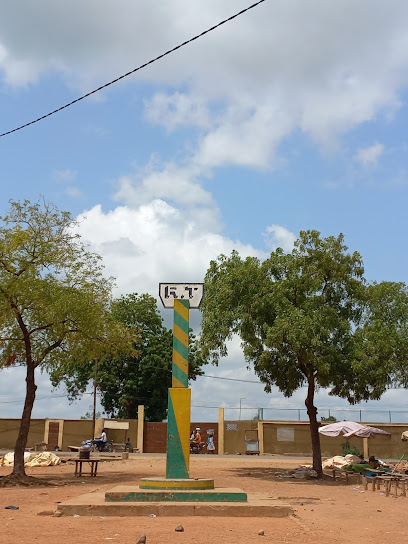
Essential bars & hidden hideouts
Cafe-resto-bar Wattara
Experience the vibrant flavors of Togolese cuisine at Café-Resto-Bar Wattara in Bassar, where every meal is a celebration of local culture.
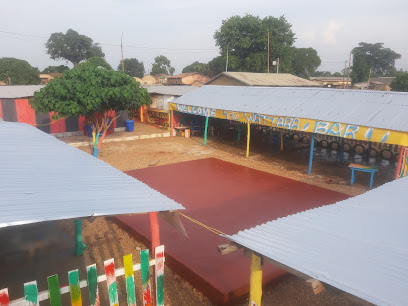
Bar mon village
Discover local culture and vibrant nightlife at Bar Mon Village in Bassar, where friendly service and a lively atmosphere await.
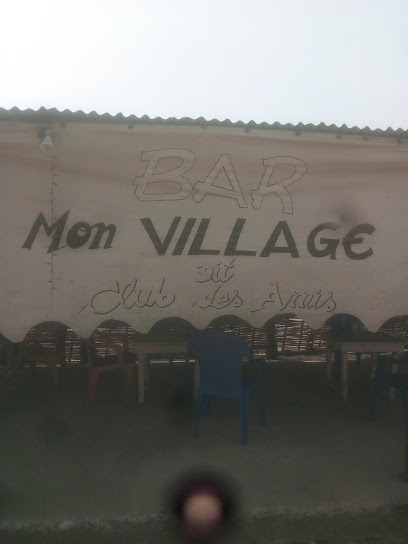
Bar Champion - Bassar Wadandé
Discover the lively ambiance of Bar Champion in Bassar Wadandé, where local flavors and vibrant culture come together for an unforgettable experience.
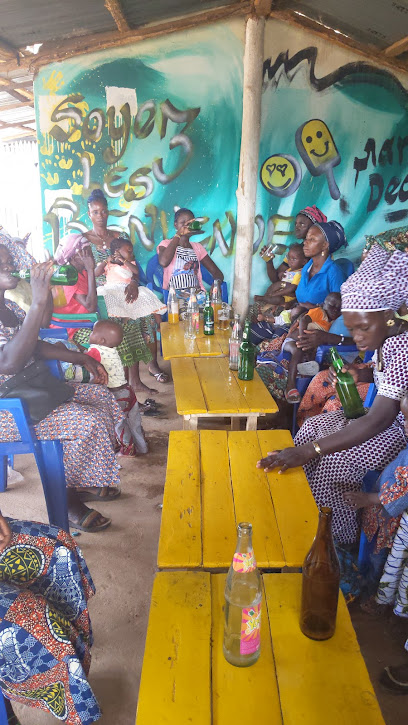
CHRIST BAR
Discover the charm of Christ Bar in Sokode, where vibrant nightlife and local culture come together for an unforgettable experience.
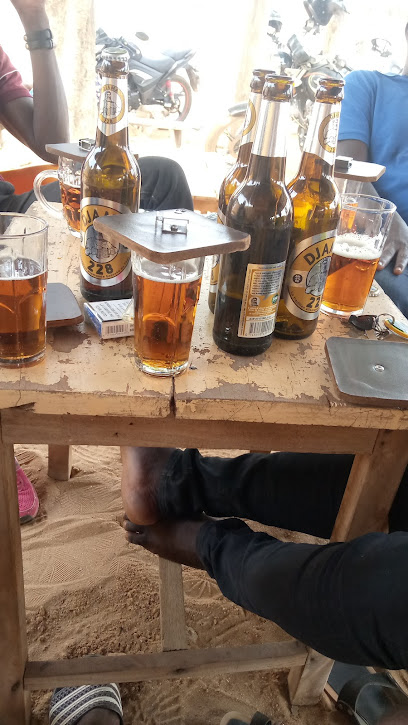
Hôtel PLATEAU
Experience the rich culinary traditions of Togo at Hôtel PLATEAU, a must-visit restaurant in Bassar for every traveler.
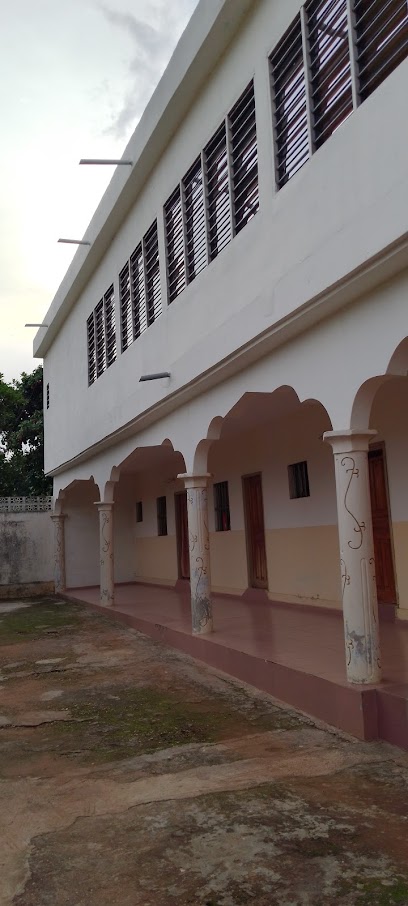
Bar Reggae Peace and Love
Experience the vibrant nightlife at Bar Reggae Peace and Love in Sokode, where refreshing drinks and reggae rhythms create an unforgettable atmosphere.
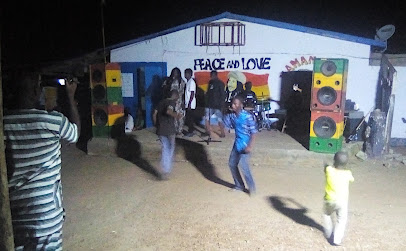
Bar Campement Sous le Néré
Discover the charm of Bassar at Bar Campement Sous le Néré, where authentic Togolese hospitality meets cozy comfort in a picturesque setting.
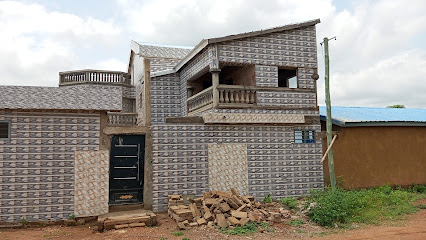
New look dit energy
Savor the authentic flavors of Togo at New Look Dit Energy, a must-visit restaurant in Bassar for food enthusiasts and travelers.

Bar Tiyoonti Yilpou
Discover the vibrant atmosphere of Bar Tiyoonti Yilpou in Bassar, where local culture meets refreshing drinks and friendly faces.
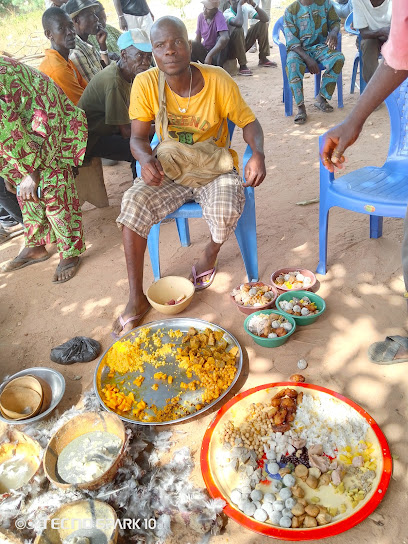
Bar Haut Fourneau
Discover the vibrant Bar Haut Fourneau in Bassar, where local culture meets refreshing drinks in a lively atmosphere.
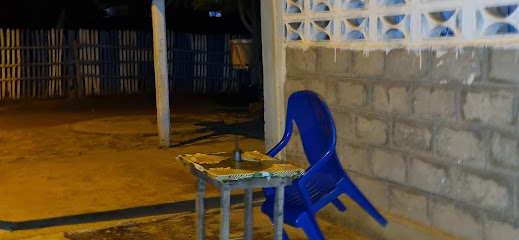
Bar Abreuvoir
Discover authentic Togolese hospitality at Bar Abreuvoir in Bassar – a vibrant bar that celebrates local culture and flavors.

Bar oasis
Discover the charm of Bassar at Bar Oasis, where locals gather for drinks, laughter, and unforgettable memories in a welcoming atmosphere.

Bar wagbe
Experience the vibrant nightlife and local culture at Bar Wagbe in Bassar, a perfect spot for relaxation and socializing.

Prestige bar Resto
Experience the vibrant flavors of Togo at Prestige Bar Resto, where local cuisine meets a lively bar atmosphere.

Local Phrases about Bassar
-
- HelloAkwaaba
[ak-wa-ba] - GoodbyeAfei
[a-fei] - YesEe
[ee] - NoDa
[da] - Please/You're welcomeMesee
[me-see] - Thank youMedaase
[me-da-se] - Excuse me/SorryKwashee
[kwa-shee] - How are you?Ete sen?
[e-te sen] - Fine. And you?Eye. Na wo nso?
[eye. na wo en-so] - Do you speak English?Wo gbe English?
[wo gbe english] - I don't understandMesee mi da
[me-see mi da]
- HelloAkwaaba
-
- I'd like to see the menu, pleaseMepa menu foforo
[me-pa me-nu fo-fo-ro] - I don't eat meatMe nni ntoro
[me ni en-to-ro] - Cheers!Afehyia pa
[a-fe-hi-ya pa] - I would like to pay, pleaseMepa sesa, mesee
[me-pa se-sa, me-see]
- I'd like to see the menu, pleaseMepa menu foforo
-
- Help!Mafe
[ma-fe] - Go away!Feeli
[fee-li] - Call the Police!Kokro me nyi
[kok-ro me nyi] - Call a doctor!Kokro me osofo
[kok-ro me o-so-fo] - I'm lostMenya
[me-nya] - I'm illMenya yie
[me-nya yi-e]
- Help!Mafe
-
- I'd like to buy...Mepa se...
[me-pa se] - I'm just lookingMese hwee
[me-se hwe] - How much is it?Eyi yie yie da?
[e-yi yi-yi da] - That's too expensiveAyi yie sika
[a-yi yi-e si-ka] - Can you lower the price?Wo wu sika?
[wo wu si-ka]
- I'd like to buy...Mepa se...
-
- What time is it?Eyi da yi da?
[e-yi da yi da] - It's one o'clockDa yi da
[da yi da] - Half past (10)Da nkununun
[da nku-nu-nu] - MorningAnɔpa
[a-no-pa] - AfternoonAwia
[a-wi-a] - EveningAnadwo
[a-na-dwo] - YesterdayNwɛ
[nwe] - TodayNnɛ
[nne] - TomorrowFɔsɛ
[fo-se] - 1Yi
[yi] - 2Ee
[ee] - 3Yie
[yi-e] - 4Nna
[nna] - 5Num
[num] - 6Nnu
[n-nu] - 7Nnyi
[n-nyi] - 8Nnum
[n-num] - 9Ku
[ku] - 10Nkurunuru
[n-ku-ru-nu-ru]
- What time is it?Eyi da yi da?
-
- Where's a/the...?Ɛhe nɔ...
[e-he no] - What's the address?Nɔnyɛ ɔsofo?
[no-nye o-so-fo] - Can you show me (on the map)?Wo gye me (ɛnkasa)?
[wo gye me en-ka-sa] - When's the next (bus)?Kɔ kɔ nyɛ...
[ko ko nye] - A ticket (to ....)Krata (ka ....)
[kra-ta ka]
- Where's a/the...?Ɛhe nɔ...
History of Bassar
-
Bassar is renowned for its ancient iron smelting traditions, dating back to the 7th century. The Bassar Kingdom, which thrived due to its advanced metallurgical skills, was a key player in regional trade. The iron produced here was highly valued and traded extensively across West Africa, contributing to the economic and technological development of the region.
-
In the late 19th century, European explorers arrived in the Bassar region, drawn by its strategic importance and rich natural resources. The German colonial administration eventually took control, incorporating Bassar into the broader colony of Togoland. This period saw significant changes in the local governance and economy, as colonial powers extracted resources and imposed new administrative structures.
-
The imposition of colonial rule brought both infrastructure development and social upheaval to Bassar. Roads and administrative buildings were constructed, but the local population faced forced labor and heavy taxation. Resistance to colonial rule was a significant aspect of Bassar's history during this period, with several uprisings and acts of defiance against the colonial authorities.
-
Following Togo's independence in 1960, Bassar underwent various developmental changes. The region saw efforts to modernize agriculture, improve education, and develop local industries. The legacy of its iron smelting past continued to influence cultural and economic activities, with initiatives to preserve and promote this heritage.
-
Bassar is home to a rich tapestry of cultural traditions and festivals. The most notable is the annual 'Tingban' festival, which celebrates the region's iron smelting heritage. This vibrant event includes traditional music, dance, and rituals that honor the ancestors and the craftsmanship of the ancient ironworkers. Such festivals play a crucial role in maintaining the cultural identity and unity of the Bassar people.
-
Bassar is an archaeological treasure trove, with numerous sites that offer insights into the region's ancient iron smelting industry. Excavations have uncovered furnaces, slag heaps, and tools that provide valuable information about the technological advancements of the ancient Bassar people. These discoveries have made Bassar a key location for researchers studying early African metallurgy.
Bassar Essentials
-
Bassar is located in the Kara Region of Togo. The nearest international airport is Gnassingbé Eyadéma International Airport in Lomé, the capital of Togo, approximately 420 kilometers away. From Lomé, you can take a bus or hire a private car to Bassar. The journey typically takes around 6 to 7 hours by road. Alternatively, there are domestic flights available to Niamtougou International Airport, which is closer to Bassar, and from there you can take a taxi or bus.
-
In Bassar, the primary modes of transportation are motorcycles (zemidjan) and taxis. Zemidjans are a popular and inexpensive way to get around town. Local taxis are also available for longer trips and can be hired for the day. There are no formal public transportation services in Bassar, but shared taxis and minibuses (bush taxis) operate between Bassar and neighboring towns.
-
The official currency in Togo is the West African CFA franc (XOF). Credit cards are not widely accepted in Bassar, so it is advisable to carry sufficient cash. There are a few ATMs in Bassar, but they may not always be reliable. It is recommended to withdraw cash in larger cities like Lomé or Kara before traveling to Bassar.
-
Bassar is generally a safe destination for tourists. However, like any travel destination, it is important to take standard precautions. Avoid walking alone at night in unfamiliar areas and keep an eye on your belongings in crowded places. While there are no specific high-crime areas targeting tourists in Bassar, it is always best to stay vigilant and aware of your surroundings.
-
In case of emergency, dial 117 for police assistance and 118 for medical emergencies. The local police station and medical facilities are available in Bassar. It is recommended to have travel insurance that covers medical emergencies. For minor health issues, there are pharmacies in the town where you can purchase over-the-counter medications.
-
Fashion: Do dress modestly, especially when visiting religious sites. Avoid wearing revealing clothing. Religion: Do respect local customs and traditions. Always ask for permission before taking photos of people or religious ceremonies. Public Transport: Do be respectful and give up your seat to elderly passengers. Don't eat or drink on public transport. Greetings: Do greet people with a handshake. A slight bow of the head is also a sign of respect. Eating & Drinking: Do try local delicacies and accept food offerings graciously. Don’t refuse hospitality, as it is considered impolite.
-
To experience Bassar like a local, visit the local markets where you can buy fresh produce and traditional Togolese goods. Engage with locals, as they are often friendly and willing to share stories about the town's history and culture. Don’t miss visiting the Bassar Ironworks, which are ancient iron-smelting sites and a significant part of the town’s heritage. For a unique experience, participate in local festivals and ceremonies, which offer a deep insight into the cultural life of Bassar.
Nearby Cities to Bassar
-
Things To Do in Atakpamé
-
Things To Do in Notse
-
Things To Do in Kpalimé
-
Things To Do in Ho
-
Things To Do in Lokossa
-
Things To Do in Aneho
-
Things To Do in Lomé
-
Things To Do in Ouidah
-
Things To Do in Abeokuta
-
Things To Do in Porto-Novo
-
Things To Do in Cotonou
-
Things To Do in Wa
-
Things To Do in Koforidua
-
Things To Do in Kumasi
-
Things To Do in Sunyani





